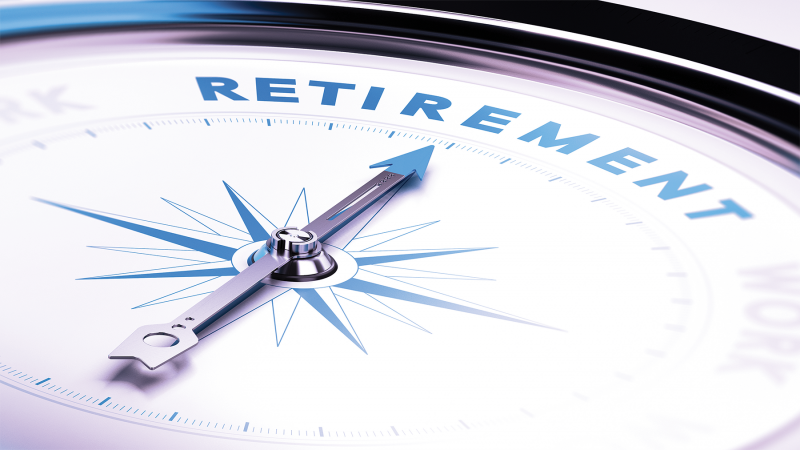Do CEOs have a shelf life? Some companies appear to believe so; a majority of firms in the S&P 1500, and more than a third of S&P 500 firms, have policies in place that mandate the retirement of their CEOs at age 65, including General Electric, Altria, ExxonMobil, and Intel. The CEO profession is one of a fairly small number of professions that are still saddled with this mandate, along with law-enforcement officials, air-traffic controllers, military personnel, airline pilots, and some states’ judges.
Mandatory retirement age is considered by some to be an outdated practice, tied more to tradition than logic, and ignoring advances in medical science that allow us to live longer, more active lives. The original Social Security Act of 1935 set the minimum age for receiving full retirement benefits at 65. At that point in history, however, the average life expectancy for an American male was 59.9 years; today, that statistic has increased to 76.2 years, and if trends continue, will be at 86.62 years by 2050. Along with longer lifespans, one may reasonably assume longer years of productivity to devote to a career.
It has been suggested that these policies remain on the books in part because they provide a “useful crutch” for dismissing CEOs whose performance is not up to par. When CEOs have been in place for a number of years, without a mandatory retirement age, they may have enough tenure to override the board’s suggestion of a necessary parting of ways. Some research has, indeed, found that older CEOs tend to be less innovative; people over the age of 70 are generally considered to be less mentally agile than their younger counterparts, as well. And, there is the possibility that overall company morale is affected if rising executives do not feel that the opportunity to ascend into that top role will become available to them.
When researchers Brandon Cline of Mississippi State and Adam Yore of the University of Missouri analyzed data from over 2,000 S&P 1500 firms, they found that CEO age appeared to be negatively related to firm value and operating performance. The data suggested that, for each additional year of CEO age, the firms had a 0.3% decrease in firm value between 1993 and 2005. They also found that the older CEOs were less “active” in relation to hiring, firing, mergers, joint ventures, etc. Most of the negative impact on performance came from the oldest CEOs in the sample, who were over the age of 68. Because this is beyond the 65-year mandatory retirement age for most companies, the data would seem to indicate that these policies are needed to address underperformance.
However, Cline and Yore went further, controlling for a variety of variables to come to the most accurate conclusion. What they discovered was that tenure is a key variable in the equation; if tenure is held constant (i.e. considering two CEOs of different ages who have both been with their companies for the same length of time), younger age appears to win out, but if age is held constant (i.e. considering two CEOs of the same age who have been with their companies for differing lengths of time), the longer tenure positively affects performance. Their research indicated that CEOs with long tenures (which often goes hand-in-hand with more advanced age) add value to both firm value and operating performance; the researchers concluded that “experience largely offsets the losses associated with CEO age.”
This was borne out in their analysis of which companies had mandatory retirement policies in place for their CEOs; the older the CEO, the more likely such a plan, but the longer tenure, the less likely. Even among companies that do have these policies, boards are able to recognize the value of their some of their older CEOs; ExxonMobil’s board waived its requirement in order to allow CEO Lee Raymond to remain in place past the 65-year mark, and Boeing Corporation’s board waived its requirement in order to allow 67-year-old Harry Stonecipher to return as CEO after having left two years prior.
Many CEOs have been able to thrive in their positions past the arbitrary age of 65: Hank Greenberg retired from American International Group at age 79; Warren Buffett is still at the helm of Berkshire Hathaway at age 85; Alan Greenspan was Federal Reserve Chairman until age 79; Strom Thurmond was 100 years old when he left the Senate; Sumner Redstone retired from Viacom at age 92; Rupert Murdoch served as the CEO of News Corp. until age 82; Citigroup was led by Sandy Weill until age 70; and Irwin Jacobs of Qualcomm stepped down at age 76. Even the Supreme Court is not ageist – the current median age of its justices is 75.
Roger Raber, head of the National Association of Corporate Directors, and Nell Minow, head of the Corporate Library, suggest that, rather than a mandatory retirement age, companies should focus on putting a strong assessment process in place for their CEOs, dismissing a CEO for lack of performance, moral or ethical indiscretions, etc. instead of age. The true test of when a CEO should retire is whether or not he or she is still effective. Is the CEO still fully engaged? Open to new ideas and willing to learn? Serving the best interests of the company and in line with its vision? Able to adapt to the evolving needs of the organization and the changing business climate? In the case of CEOs for whom the answer to these questions is “yes,” their shelf life has likely not been exceeded yet.


